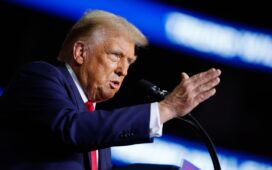Elon Musk at SpaceX’s Starbase facility near Boca Chica Village in South Texas on February 10, 2022. Tesla’s billionaire CEO had anticipated more robust deliveries at the start of the second quarter.
AFP via Getty Images
Tesla’s deliveries of new battery-powered cars and crossovers cooled down in the second quarter from the year’s first three months as a prolonged slowdown of production in China due to strict Covid-related protocols lasted longer than CEO Elon Musk anticipated and as the company worked through startup headaches at new plants in Germany and Texas.
The Austin-based carmaker said it delivered 254,695 vehicles to customers worldwide in the three months that ended on June 30, up 26% from a year ago but down 18% from a record 310,048 in the first quarter. The figure was also below an expected 258,000 deliveries, the average of analysts surveyed by Forbes.
In its quarterly release, Tesla cited “ongoing supply chain challenges and factory shutdowns beyond our control.”
Tesla Inc.
The slowdown in China, Tesla’s most profitable market, comes after a period of relative stability in terms of profit and production growth for Elon Musk’s EV powerhouse. Along with a slower pace of deliveries the quarter also brought Tesla’s first large-scale job cuts that Musk, who expects the U.S. economy to fall into recession, said will affect about 3.5% of employees worldwide. This week those firings included the elimination of about 200 jobs for people working with Tesla’s Autopilot team in San Mateo, California. Musk also recently complained about tough startup conditions at the new Berlin and Austin Gigafactories that are costing the company “billions.”
“Both Berlin and Austin factories are gigantic money furnaces right now,” Musk said in a May 31 interview with fans from Tesla Owners Silicon Valley. “Berlin and Austin are losing billions of dollars right now because there’s a ton of expense and hardly any output.”
Tesla Model Y and Model 3 electric vehicles wait to be loaded at Nangang port in Shanghai, China.
VCG via Getty Images
Musk was far more upbeat in the company’s first-quarter results call on April 20, initially anticipating that the current three-month period could see deliveries remain similarly robust.
“Notwithstanding new issues that arise, I think we will see a record output per week from Giga Shanghai this quarter, albeit we are missing a couple of weeks,” the billionaire entrepreneur told analysts and investors on April 20. “Most likely vehicle production in Q2 will be similar to Q1, maybe slightly lower. But it’s also possible we may pull a rabbit out of the hat and be slightly higher.”
Production for the just-concluded quarter totaled 258,580, up from 206,421 a year ago but down 15% from the previous’s quarter record 305,407.
Unlike other automakers which book vehicle sales as soon as they are shipped from factories to dealers, Tesla doesn’t record its models as sold until they are delivered to customers. The Model 3 and Model Y accounted for the lion’s share of Tesla’s deliveries in the quarter, totaling a combined 238,533 units. The high-end Model S sedan and Model X crossover, which cost more than $100,000 each, posted combined deliveries of 16,162.
The company will report its financial results for the quarter later this month.
Tesla shares rose 1.2% to close at $681.79 in Nasdaq trading on Friday, after dropping 38% in the second quarter.








